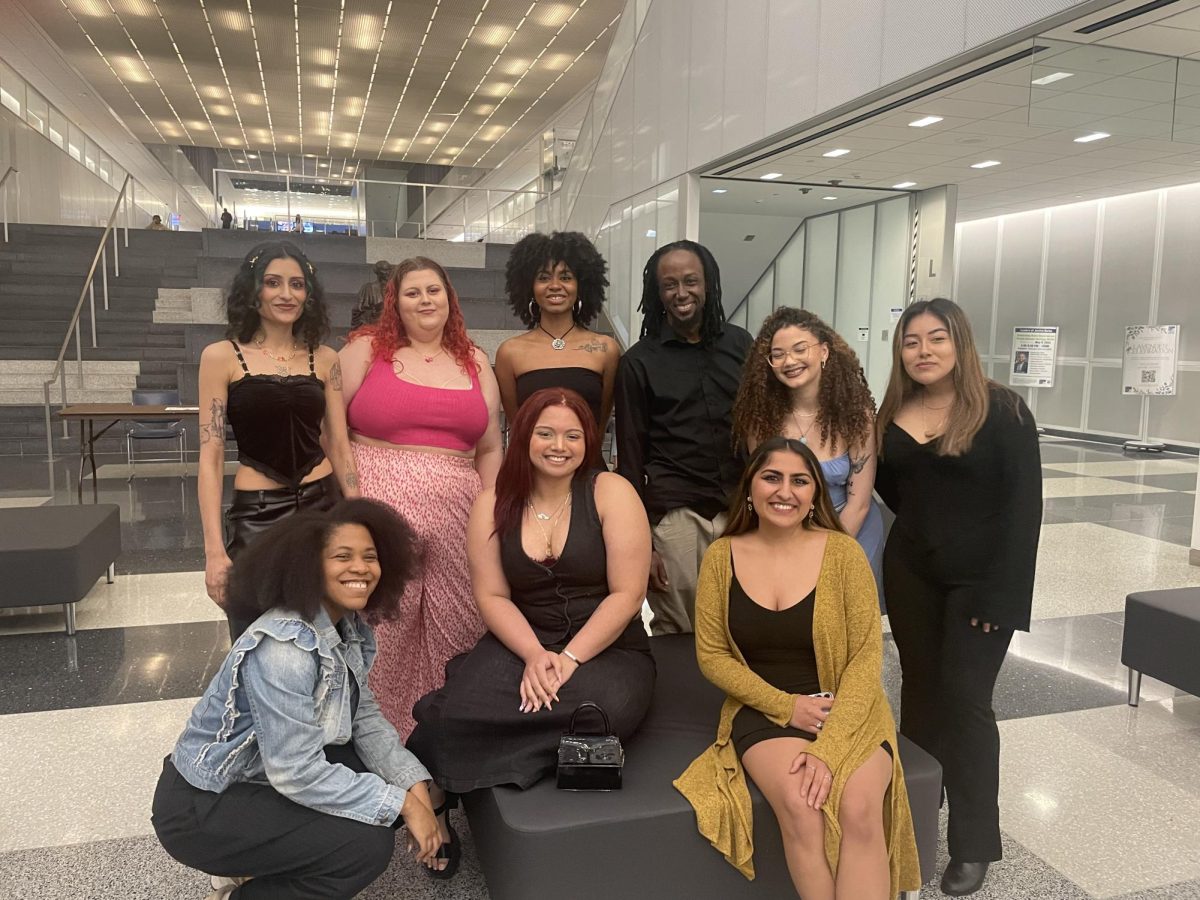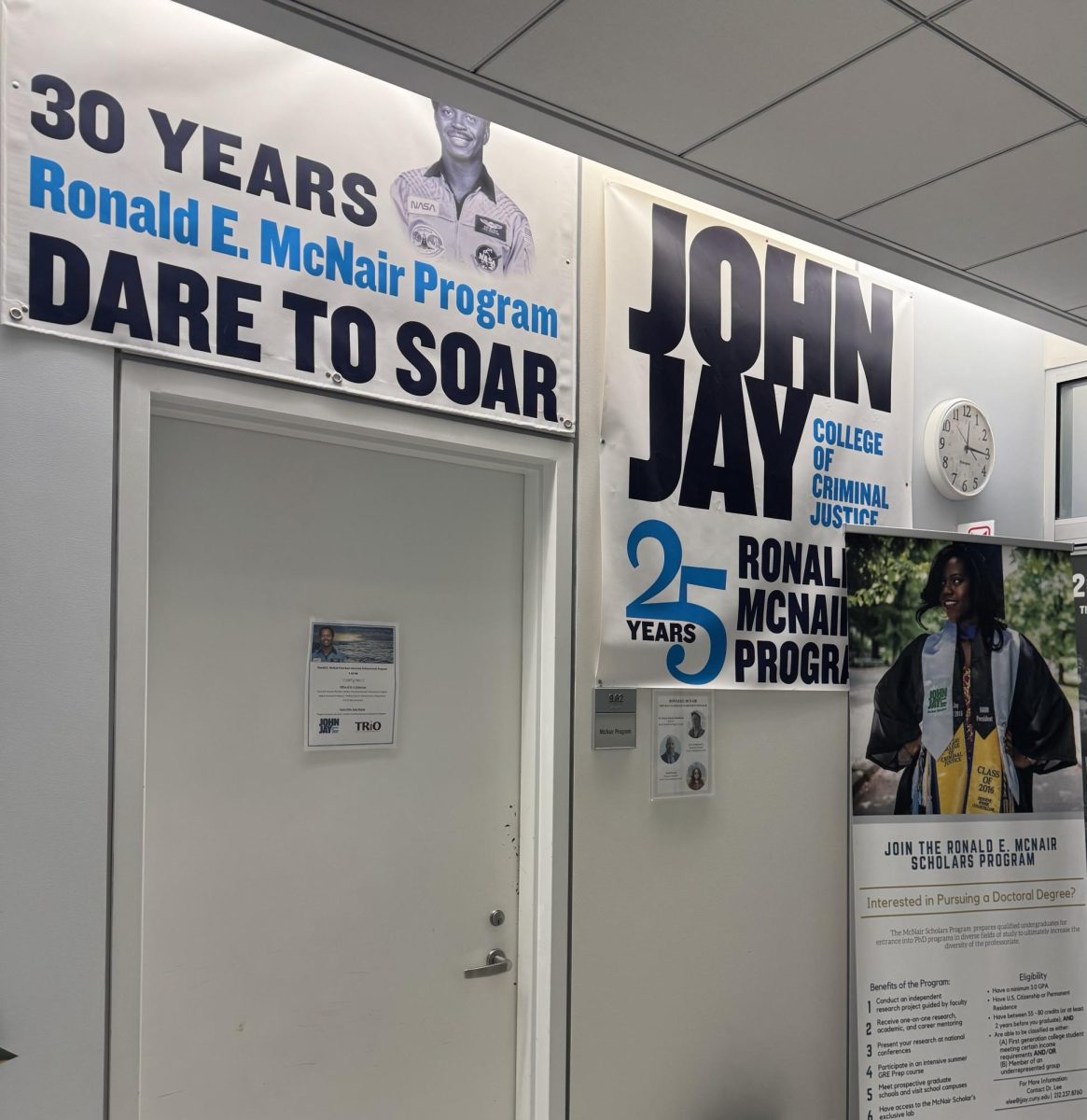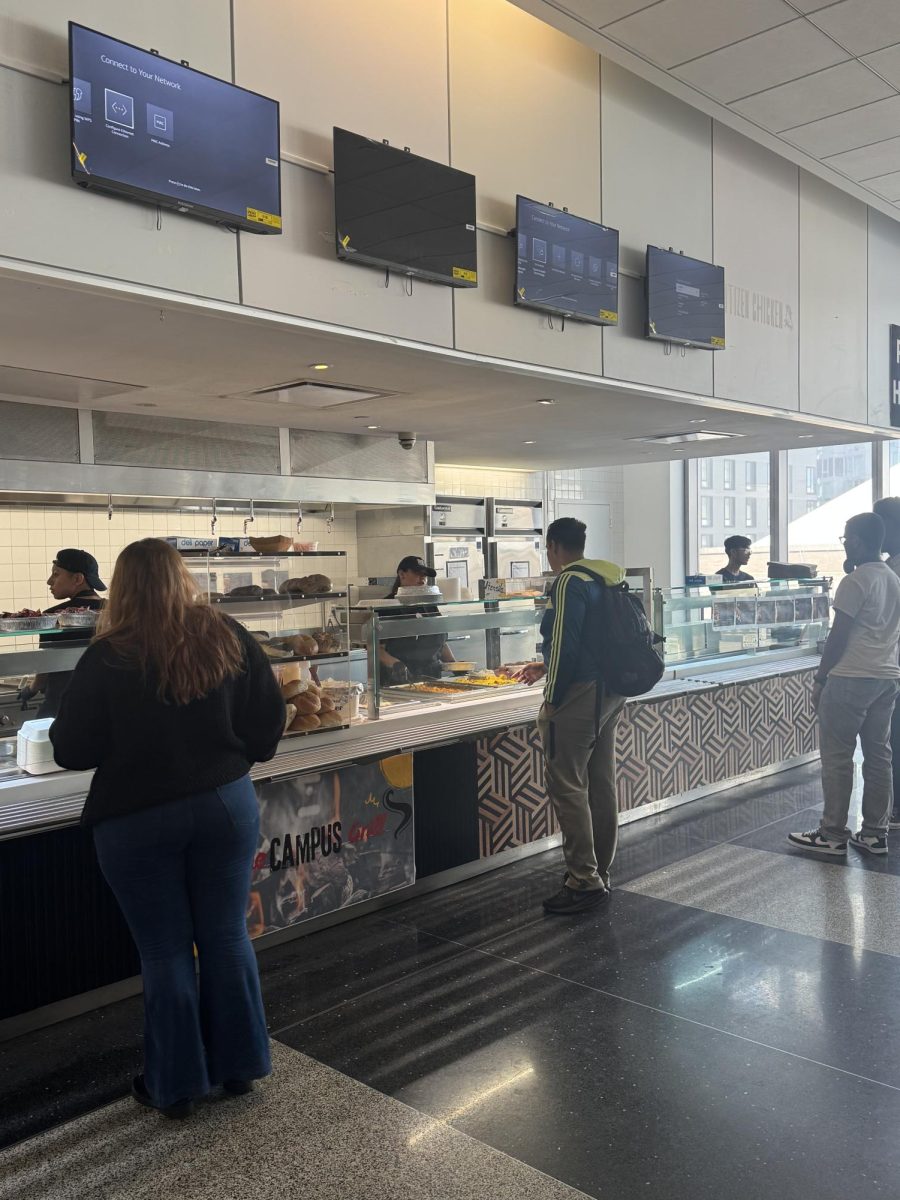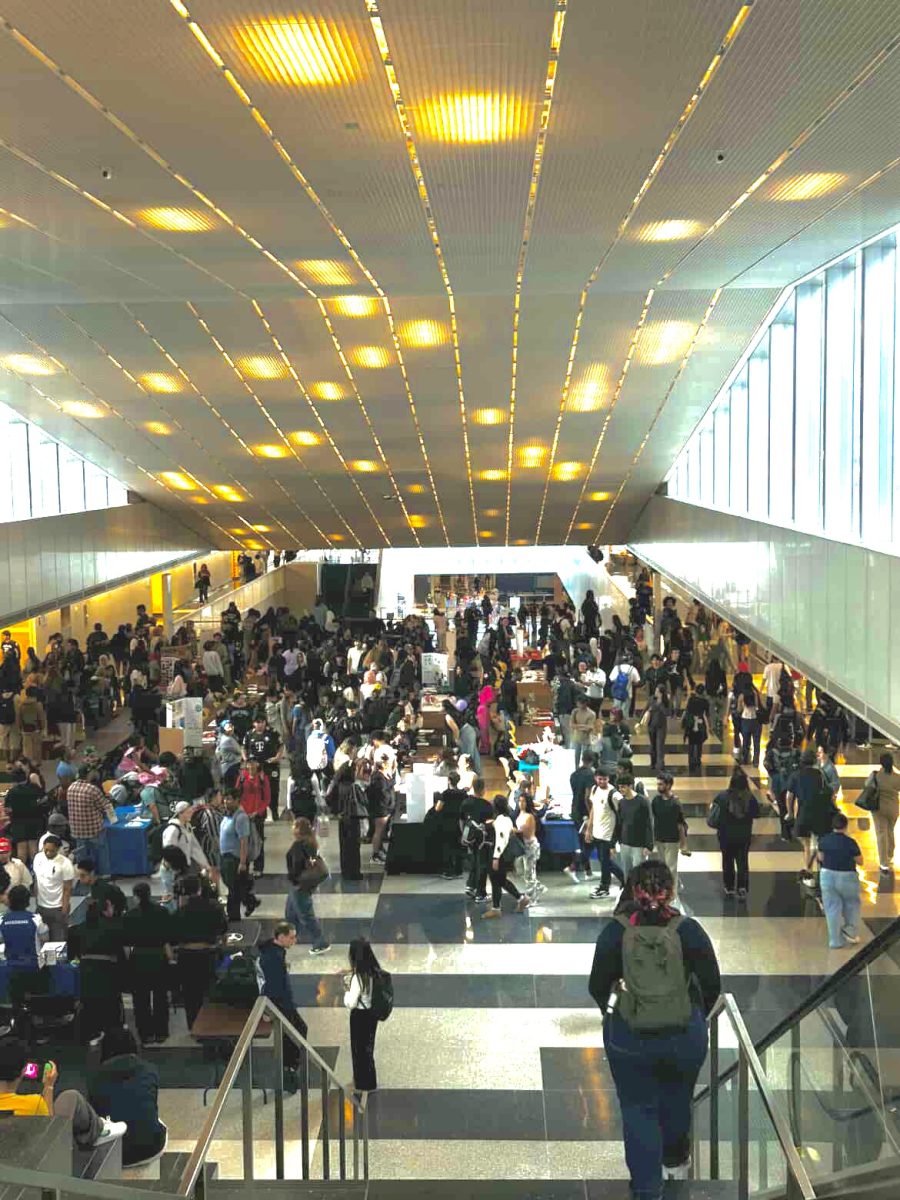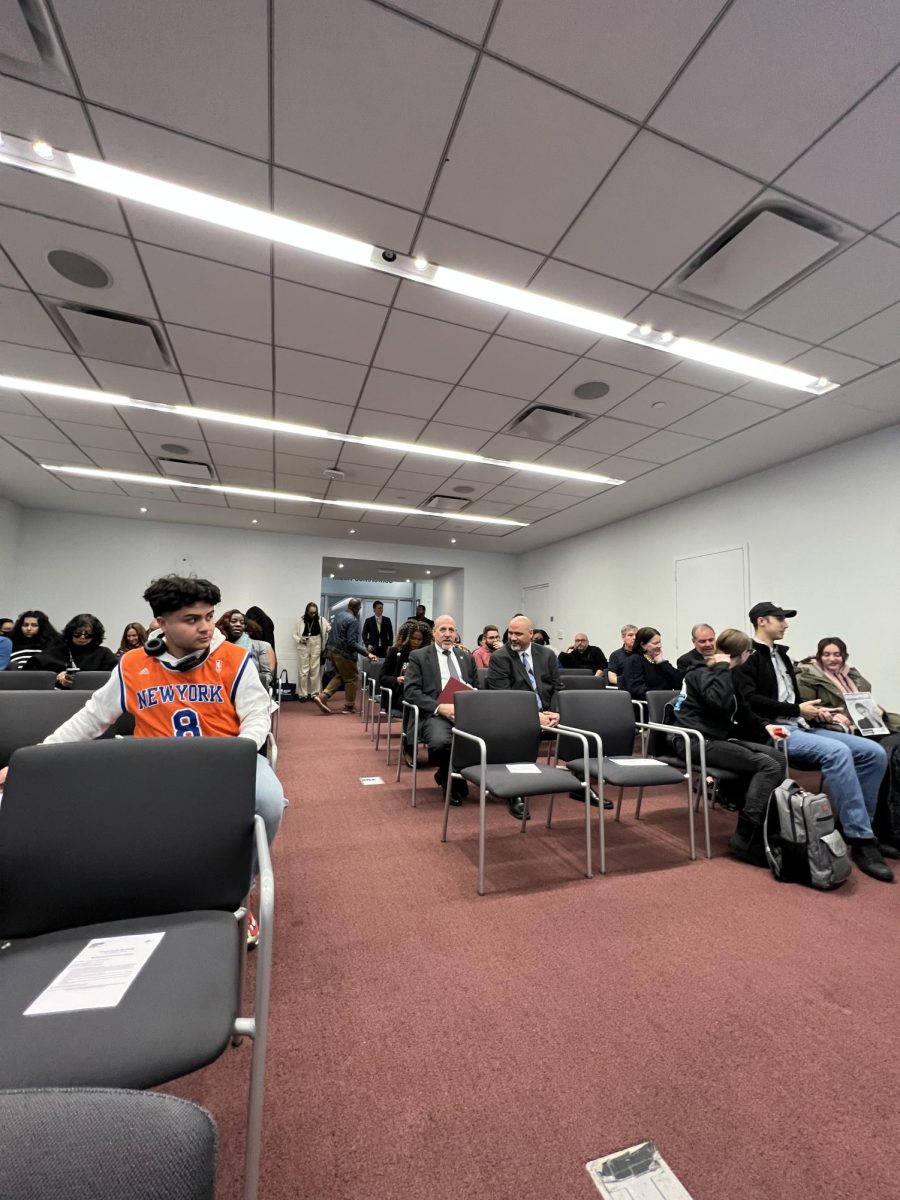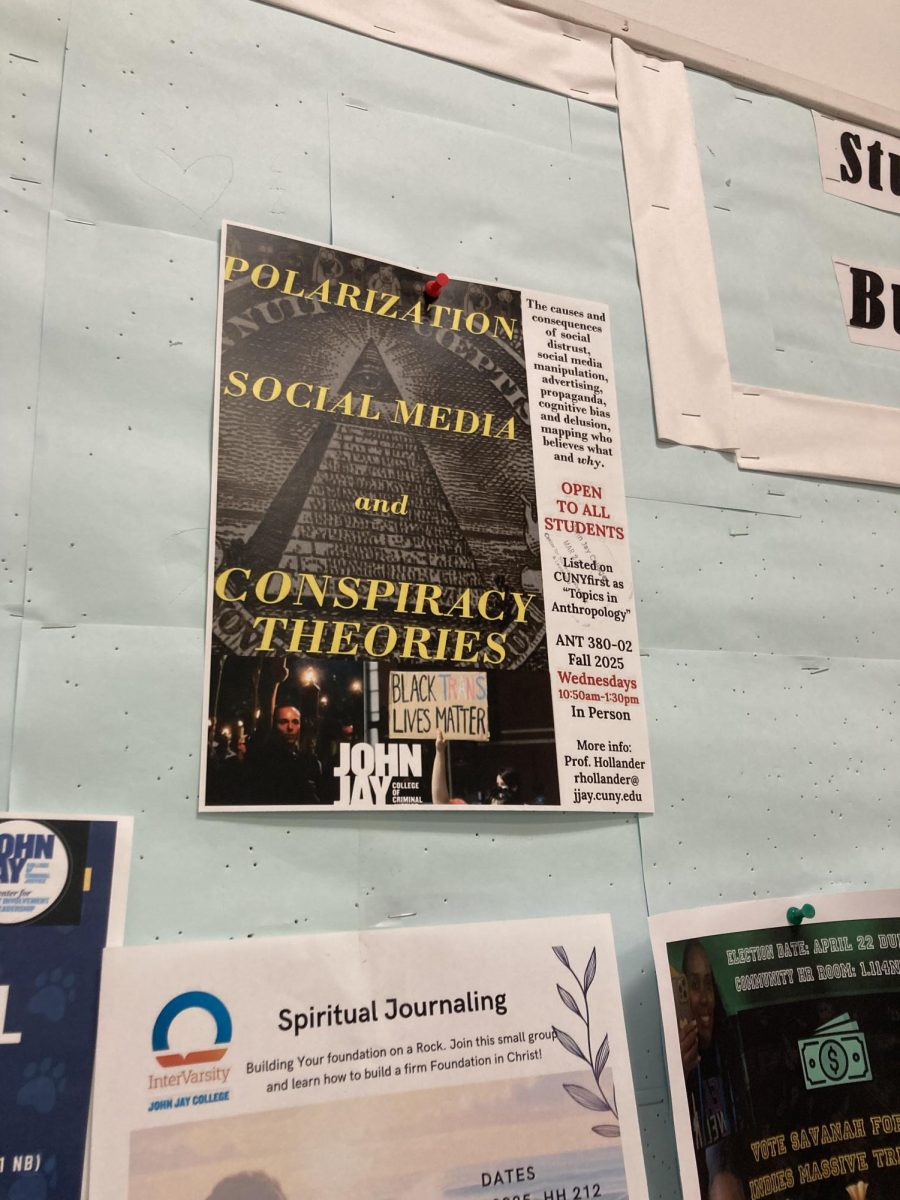On May 8th, 2024, the annual two-day Seeing Rape play opened in the Gerald W. Lynch Theater at John Jay.
The play is revived every year as part of a final project for the course ISP 334: Sex, Gender, and Justice in Global Perspective, which is taught by Professors Barbara Cassidy and Shonna Trinch.
Professor Cassidy has an MFA in Playwriting and has been teaching at John Jay for 12 years, while Professor Trinch has been teaching at John Jay for 20 years.
They use their combined experience and talents to raise awareness for sexual assault in what students have perceived as a raw, emotional, and impactful way.
Trinch offered insight into why she and Cassidy chose the play’s name.
“The fact that we can’t talk about rape, the fact that we can’t say the word rape,” she said. “The only way to destigmatize it is to say it,” said Trinch.
Cassidy commented on why a play is just as impactful, if not more impactful, as any of the other methods of raising awareness of sexual assault for survivors.
“A strong support system can be very helpful for someone who has been sexually assaulted,” she said. “Some people don’t have that and for the people who don’t, the arts can aid in helping them process their situation,” said Cassidy.
Trinch supported Cassidy’s statement that plays serve as support systems for viewers.
“I think the play is a support system itself because it doesn’t let society tolerate and accept sexual violence,” Trinch declared.
The play started at 6:00 pm and was opened by Mariska Hargitay and Trinch.
Hargitay has long been an supporter for sexual assault survivors.
She advocates for change through her advocacy group, The Joyful Heart Foundation, and her various social justice projects, including the Emmy-award winning documentary I AM EVIDENCE.
She opened the play with a few words.
“There is so much power in storytelling [and its] power lies in its capacity to cultivate empathy,” said Hargitay.
Trinch also gave a short speech.
“[The audience] is doing what we call radical witnessing,” she said. “You look, you see, you come, and you come to understand,” said Trinch.
The play consisted of eight separate stories, each written by a student playwright.
Angelique Racine, a criminal justice major and playwright, commented on what it was like to have her work put into action on stage.
“It feels a little bit surreal,” she said. “Working on this behind the scenes with all the other playwrights and the actors really brings into focus how, despite how stigmatized this is, we all do have that intense desire to talk about it,” said Racine.
Another component of the plays that makes them so important, aside from showcasing the playwrights’ hard work, is raising awareness for sexual assault survivors everywhere.
Tau Harris, a gender studies major and a playwright for last year’s Seeing Rape production, shared his perspective.
“It is a chance to give a voice to people that face a great deal of trauma and are afraid to speak up,” he said. “It is a chance for people to explore a topic that is really uncomfortable and it is beneficial to do that,” said Harris.
Simone Holhjem, a forensic psychology major and playwright, affirmed Harris’s sentiments.
“[The plays] make people more aware of and inform people about different kinds of sexual assault,” said Holhjem.
After the play, there was a Q&A session, which was hosted by Professor Cassidy, four actors, four playwrights, and Chris Lake, a guest star who runs the nonprofit Community for a Cause.
Professors Trinch and Cassidy composed this play so others could learn, so they gave the viewers a chance to ask questions.
With the hard work of the playwrights, Professors Trinch and Cassidy, the actors, the stage crew, and the video and photo production crews, everyone who fights to change the narratives surrounding sexual assault are one step closer to doing so.
“The stories of survivors pave the way for healing and justice,” said Hargitay.


